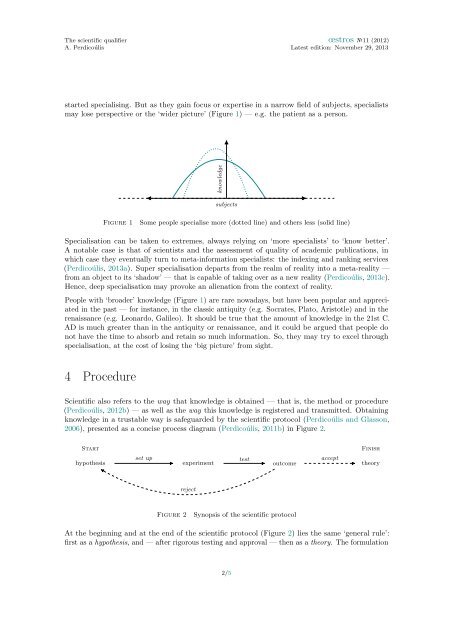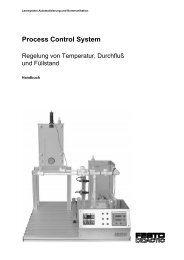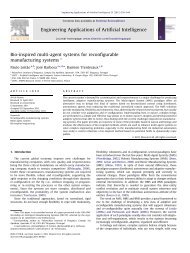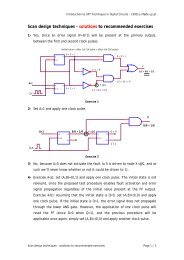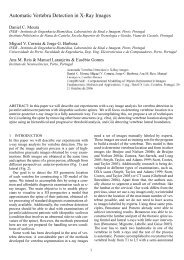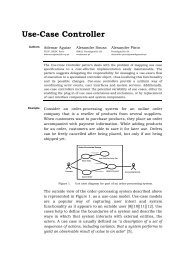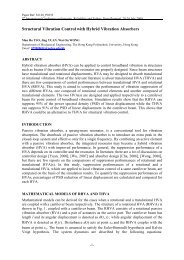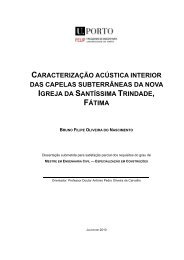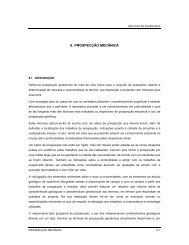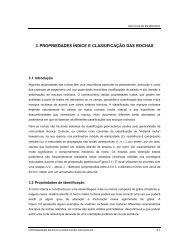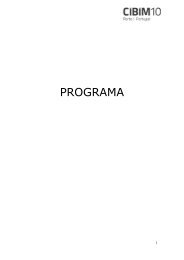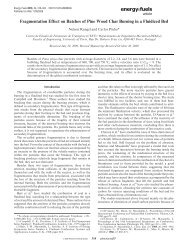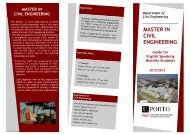The scientific qualifier
The scientific qualifier
The scientific qualifier
Create successful ePaper yourself
Turn your PDF publications into a flip-book with our unique Google optimized e-Paper software.
<strong>The</strong> <strong>scientific</strong> <strong>qualifier</strong><br />
A. Perdicoúlis<br />
œstros №11 (2012)<br />
Latest edition: November 29, 2013<br />
started specialising. But as they gain focus or expertise in a narrow field of subjects, specialists<br />
may lose perspective or the ‘wider picture’ (Figure 1) — e.g. the patient as a person.<br />
knowledge<br />
subjects<br />
Figure 1<br />
Some people specialise more (dotted line) and others less (solid line)<br />
Specialisation can be taken to extremes, always relying on ‘more specialists’ to ‘know better’.<br />
A notable case is that of scientists and the assessment of quality of academic publications, in<br />
which case they eventually turn to meta-information specialists: the indexing and ranking services<br />
(Perdicoúlis, 2013a). Super specialisation departs from the realm of reality into a meta-reality —<br />
from an object to its ‘shadow’ — that is capable of taking over as a new reality (Perdicoúlis, 2013c).<br />
Hence, deep specialisation may provoke an alienation from the context of reality.<br />
People with ‘broader’ knowledge (Figure 1) are rare nowadays, but have been popular and appreciated<br />
in the past — for instance, in the classic antiquity (e.g. Socrates, Plato, Aristotle) and in the<br />
renaissance (e.g. Leonardo, Galileo). It should be true that the amount of knowledge in the 21st C.<br />
AD is much greater than in the antiquity or renaissance, and it could be argued that people do<br />
not have the time to absorb and retain so much information. So, they may try to excel through<br />
specialisation, at the cost of losing the ‘big picture’ from sight.<br />
4 Procedure<br />
Scientific also refers to the way that knowledge is obtained — that is, the method or procedure<br />
(Perdicoúlis, 2012b) — as well as the way this knowledge is registered and transmitted. Obtaining<br />
knowledge in a trustable way is safeguarded by the <strong>scientific</strong> protocol (Perdicoúlis and Glasson,<br />
2006), presented as a concise process diagram (Perdicoúlis, 2011b) in Figure 2.<br />
Start<br />
Finish<br />
hypothesis<br />
set up<br />
experiment<br />
test<br />
outcome<br />
accept<br />
theory<br />
reject<br />
Figure 2<br />
Synopsis of the <strong>scientific</strong> protocol<br />
At the beginning and at the end of the <strong>scientific</strong> protocol (Figure 2) lies the same ‘general rule’:<br />
first as a hypothesis, and — after rigorous testing and approval — then as a theory. <strong>The</strong> formulation<br />
2/5


